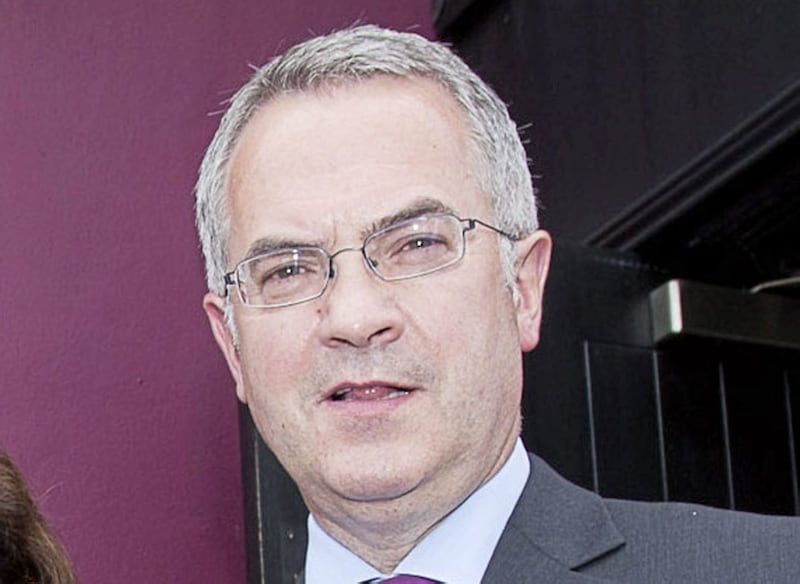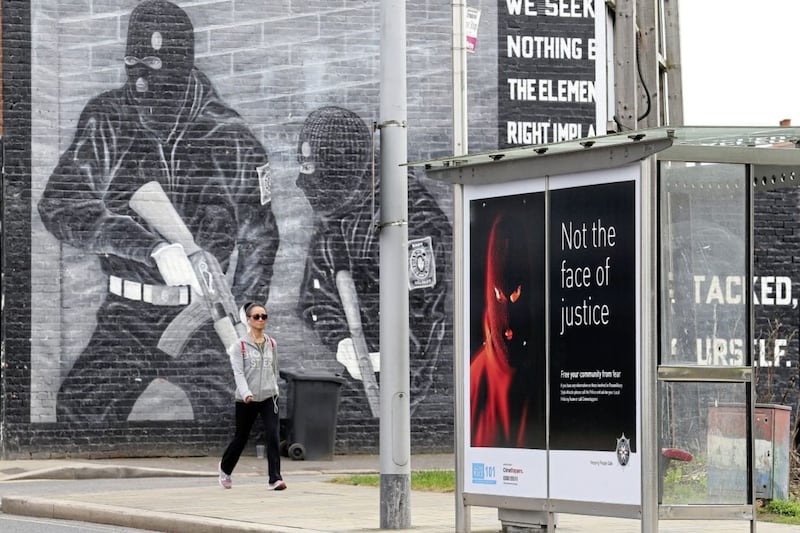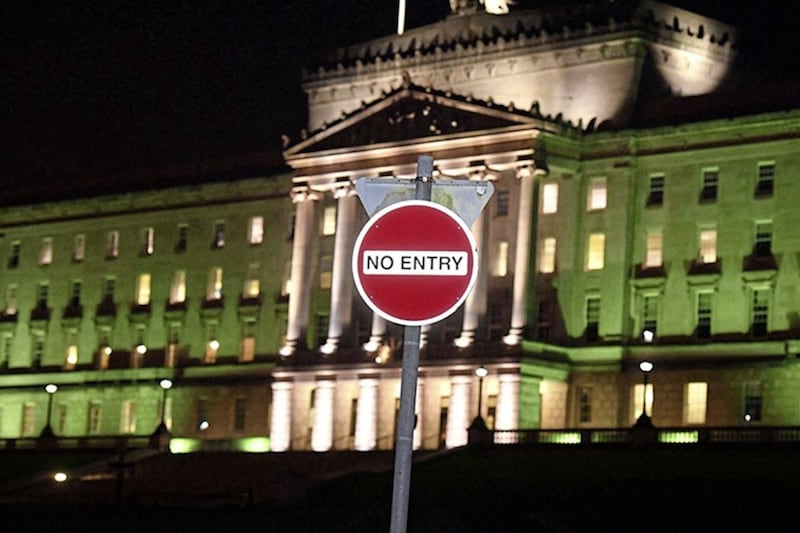ALLIANCE has joined Stormont's opposition parties in criticising the lack of progress in implementing the Fresh Start agreement one year after its signing.
The document – billed as an "agreement to consolidate the peace, secure stability, enable progress and offer hope" – was unveiled 12 months ago today following weeks of negotiations involving the assembly's main parties and the British and Irish governments.
The executive will present its assessment of Fresh Start next week, alongside an update on the first six months of the new-look devolved institutions.
To coincide with the agreement's first anniversary, however, the UUP, SDLP and Alliance all issued statements criticising the accord and its implementation.
Ulster Unionist leader Mike Nesbitt labelled the deal a "non start".
"We've had lots of words from the Sinn Féin/DUP executive but little action," he said.
"Meanwhile paramilitaries still rule the roost, NHS waiting lists get longer, money doesn't get spent and victims despair as the past lingers poisonously."
The Strangford MLA said the agreement's only achievement to date was creating a "short-term solution" to welfare reform that "saves Sinn Féin's blushes".

SDLP MLA Alex Attwood said Fresh Start was "in big part, an election strategy" designed to "disguise the failures" of the DUP-Sinn Féin-led administration.
"The strategy to deal with paramilitaries and organised crime is now seen as lacking detail, lacking impact, and lacking ambition," he said.
"Fresh Start was utterly silent on the issue of addressing the past, which it now appears, has become the private business of the DUP, Sinn Féin and the British government – addressing the past should not be left in their hands as it will not win the confidence of victims and survivors."

Alliance's Stewart Dickson said the deal had "left victims in limbo".
"Alliance did not fully endorse the so-called Fresh Start agreement, mainly due to its inability to comprehensively deal with the needs of victims and their families," he said.
"Instead it was used for self-praise by the DUP and Sinn Féin. One year on, victims remain without resolution and yet the executive continues to pretend this deal was ground-breaking."
A British government spokesman said the agreement had tackled issues "that threatened devolution itself".
"It put the executive’s finances on a more stable footing and resolved the deadlock over welfare reform.
"It put important new obligations on Northern Ireland’s elected representatives to work together on their shared objective of ridding society of all forms of paramilitary activity and groups."
ANALYSIS
WE are arguably in the most stable period of government since devolution was restored and surely some credit for this must go to the Fresh Start agreement. But while it helped fix a number of Stormont’s largely self-imposed ‘housekeeping’ problems, the stuff that still causes deep division in our society continues to be kicked down the road. Ironically, the process from which the agreement emerged was originally conceived to address the divisive issues of flags, parades and the past before morphing, as circumstances dictated, into a remortgaging exercise coupled with a restructuring of Stormont’s departments and measures to tackle paramilitarism. The on-off negotiations that concluded a year ago began with the much-hyped arrival of Richard Haass and Megan O'Sullivan at the end of summer 2013. Despite an expectation then that a compromise would inevitably be found, the Haass process failed. The follow up talks that were convened by the British and Irish governments in the autumn of 2014 featured a new element reflecting Sinn Féin's sudden resistance to the Tory-led coalition’s welfare reform plans, a stance that chimed with republicans’ anti-austerity agenda in the south. After 11 weeks and a matter of days before Christmas, the two governments emerged with the Stormont House Agreement. This accord included fresh detail on how legacy issues could be addressed and saw Sinn Féin acquiesce to the Tories' welfare changes but with a series of mitigation measures to protect the "most vulnerable". It also included plans to reduce the number of executive departments. At the end of the following February, however, Gerry Adams’s party dramatically withdrew support for the agreement, accusing the DUP of "bad faith” over welfare. Suspicions remain that the republicans' shock tactic was a bid to buy time until a Labour government came to power in Britain and an election was called in the south – neither of which materialised. The dysfunctional Stormont executive limped on amid much recrimination until the IRA murder of Kevin McGuigan in August last year forced the institutions into crisis and focused minds on a new round of talks. The Fresh Start agreement that emerged a year ago was largely Stormont House in duplicate but with a timely bolt-on for tackling paramilitarism. It saw hundreds of millions of pounds pledged, borrowed and recycled in order to put the executive back on a firmer financial footing. In the end, only the DUP and Sinn Féin endorsed the deal, while it paved the way for Peter Robinson to announce his retirement just days after it was signed off. Flags and parades were parked in all but name by processes which could take years but the real shortcoming lay in not finding agreement on the past. Twelve months on, much of Fresh Start remains on track but sporadically legacy issues come back to haunt us. Nor have we seen the fruits or much beyond a strategy for tackling the scourge of paramilitarism. In fact, as the recent controversy over Dee Stitt's involvement with Charter NI demonstrates, the executive itself is often guilty of undermining its own efforts. Some of the the money pledged for integrated schools has materialised, the civil service has shed thousands of jobs through the voluntary exit scheme and corporation tax will be cut in less than two years time. It seems Fresh Start's success lies in the stability it has delivered but beyond that its merits are debatable.








